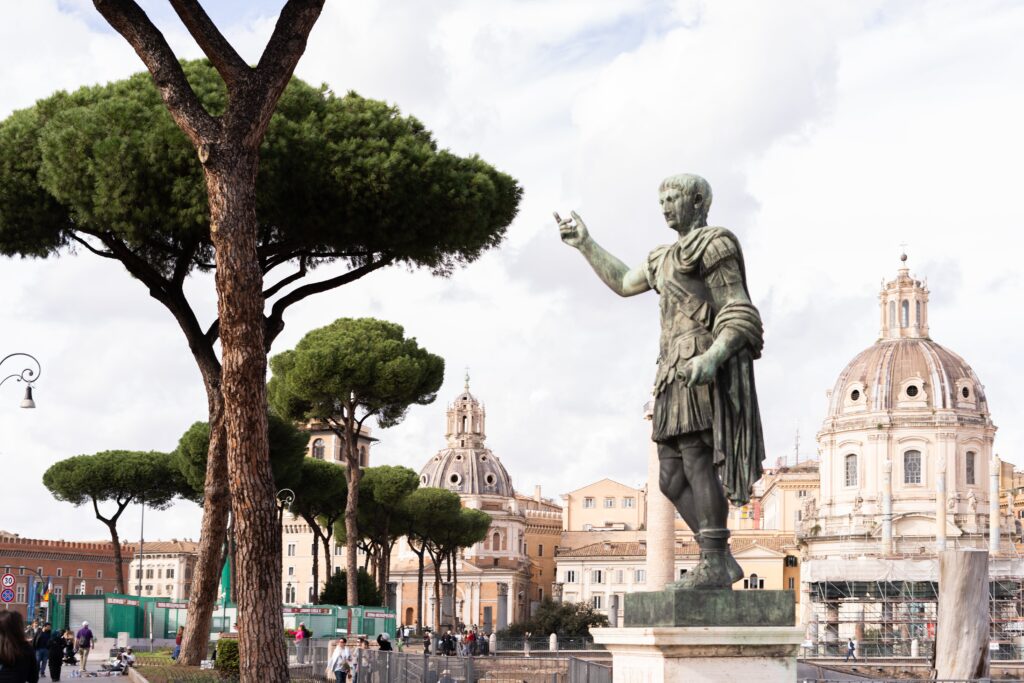Echoes of Glory:
Exploring the Fascination with the Roman Empire
In the vast tapestry of human history, few civilizations have left an imprint as indelible as that of the Roman Empire. Its legacy stretches across centuries, influencing everything from politics and law to culture and architecture. Yet, amidst the passage of time and the rise and fall of empires, why do men find themselves drawn to ponder upon the grandeur and might of Rome? What is it about this ancient civilization that continues to captivate the imagination and stir the intellect of contemporary minds?

Why Do Guys Think about the Roman Empire?
Men, like avid historians excavating the ruins of antiquity, often find themselves enraptured by the majesty of the Roman Empire. But why does this fascination persist? What is it about the Roman Empire that beckons the male psyche to delve into its annals with fervor?
The Allure of Power and Conquest
At the heart of the Roman Empire lies a narrative of unparalleled power and conquest. For millennia, men have been enamored by tales of mighty legions marching across continents, forging an empire that stretched from the windswept moors of Britannia to the sun-kissed shores of Egypt. The sheer magnitude of Rome’s military prowess, its strategic brilliance, and its ability to subdue vast swathes of territory evoke a primal admiration for strength and domination.
Mastery of Governance and Law
Beyond its military might, the Roman Empire stands as a testament to the art of governance and the rule of law. Men, inherently drawn to systems of order and justice, find themselves enthralled by Rome’s intricate legal framework and administrative prowess. From the creation of the Twelve Tables to the establishment of a vast network of roads and aqueducts, Rome’s contributions to governance and infrastructure echo through the corridors of time, inspiring admiration for its organizational acumen and civilizational achievements.
Cultural Legacy and Innovation
In the annals of history, few civilizations have left as profound a cultural legacy as Rome. From its towering monuments and architectural marvels to its literary masterpieces and philosophical treatises, the Roman Empire continues to shape the cultural landscape of the modern world. Men, with their penchant for intellectual pursuits and artistic endeavors, find themselves drawn to the rich tapestry of Roman culture, seeking inspiration in its enduring symbols and timeless ideals.
Echoes of Greatness
In the collective consciousness of men, the Roman Empire occupies a hallowed place, a symbol of grandeur and greatness against which all other civilizations are measured. Its rise from humble origins to global dominance, its enduring legacy of law and governance, and its cultural contributions to humanity serve as a beacon of inspiration in an ever-changing world. To ponder upon the Roman Empire is to confront the eternal quest for power, knowledge, and immortality—a quest that resonates deeply within the hearts of men across the ages.
The Romance of Rome
In the end, the allure of the Roman Empire lies not merely in its historical achievements, but in the timeless romance of its story. Men, with their thirst for adventure and glory, find themselves drawn to the epic saga of Rome—a saga of triumph and tragedy, of heroes and villains, of conquest and collapse. To think about the Roman Empire is to embark on a journey through the corridors of time, to explore the depths of human ambition and folly, and to glimpse, however fleetingly, the echoes of glory that resonate within us all.
In the grand tapestry of human history, the Roman Empire stands as a testament to the enduring spirit of mankind—to our boundless ambition, our relentless pursuit of greatness, and our capacity to shape the world in our image. And so, as men ponder upon the legacy of Rome, they do not merely contemplate a distant empire lost to the sands of time; they confront the eternal quest for meaning and purpose that defines the human experience.

